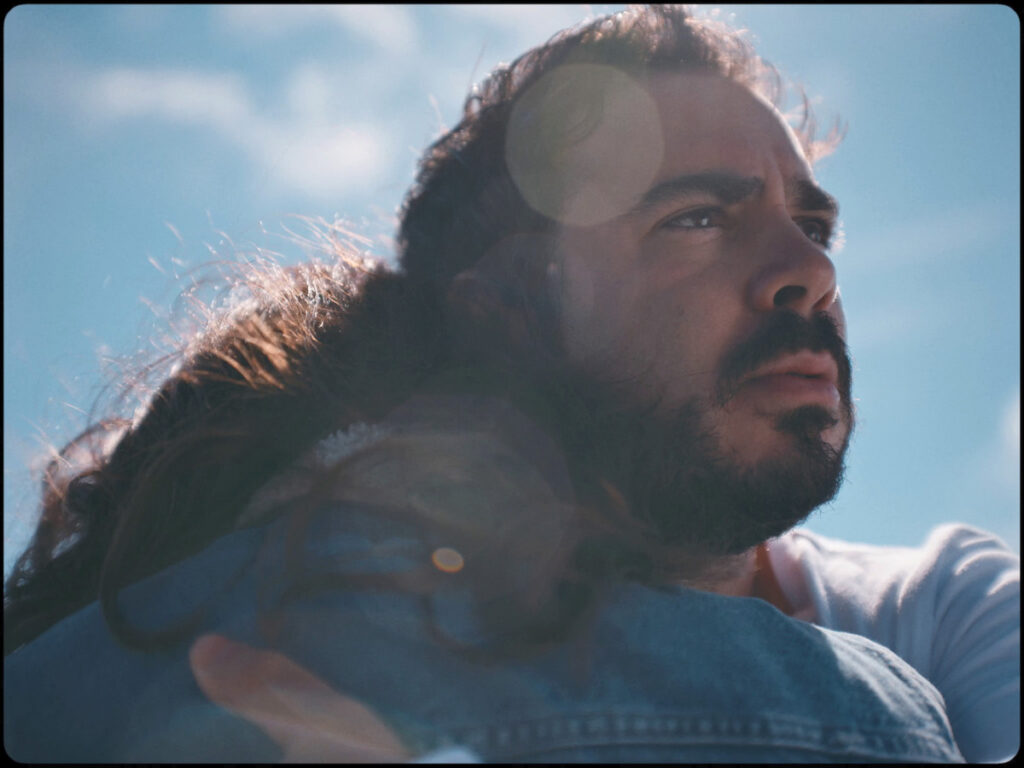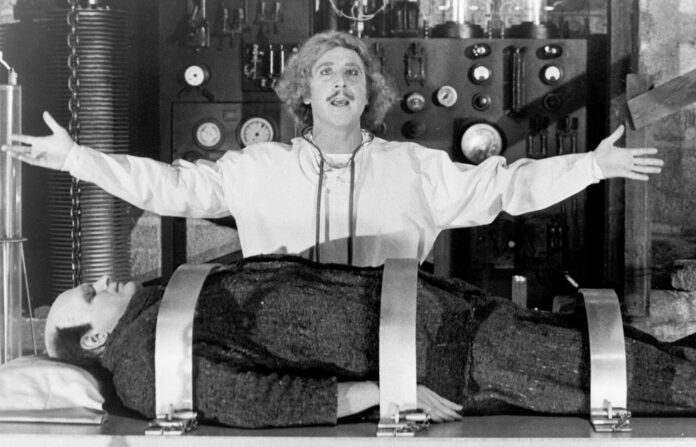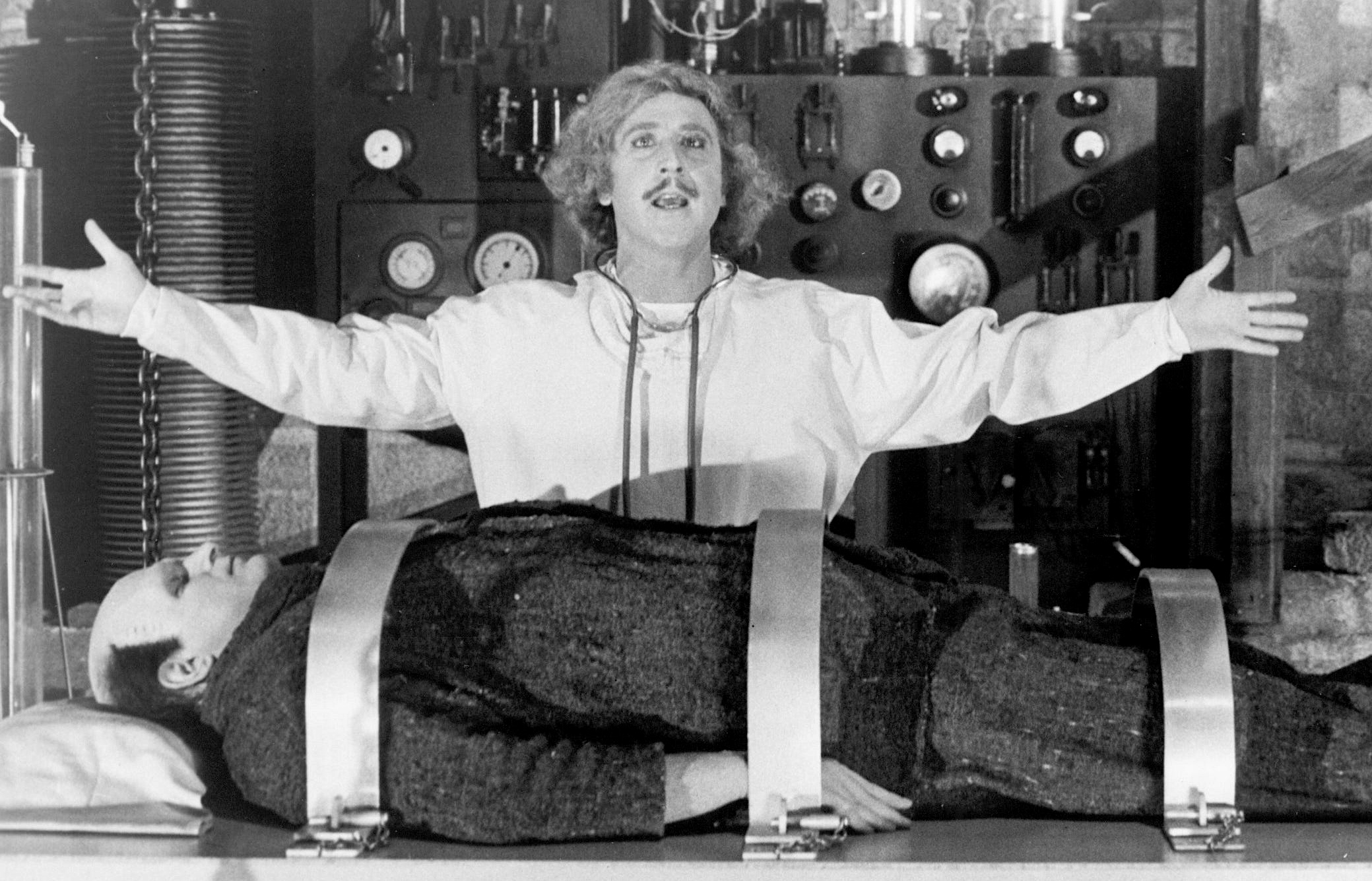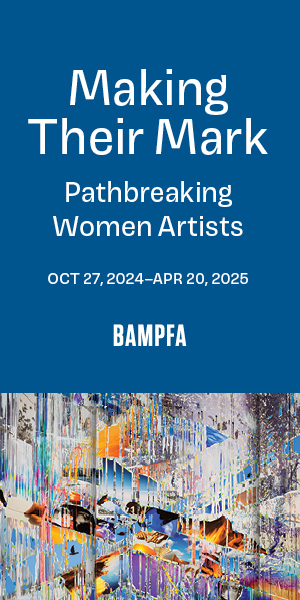This year, The San Francisco Jewish Film Festival (Thu/20-Sun/6) expands beyond the confines of the Castro Theatre to include the Vogue Theatre and Oakland’s Piedmont Theatre with 67 boundary-breaking films that boldly go where none have gone before—pushing the limits of Jewish storytelling to audiences across the Bay Area. (Read our full guide here.)
I spoke to those behind some of this year’s most anticipated movies—Remembering Gene Wilder producers David Knight and Julie Nimoy, The Secret Art of Human Flight writer Jesse Orenshein and director H.P. Mendoza, and Rabbi on the Block subject Tamar Manasseh—about setting their unique stories to celluloid.
REMEMBERING GENE WILDER
Produced by husband-and-wife team David Knight and Julie Nimoy, Remembering Gene Wilder rounds out previous portrayals of the beloved late actor with hundreds of rare home movies and photos, memorable scenes from classic Wilder films (The Producers, Young Frankenstein, Willy Wonka and the Chocolate Factory), and remembrances from intimates like Mel Brooks, Harry Connick Jr., and Rain Pryor.
48 HILLS What was your aim with the film?
JULIE NIMOY We wanted people to smile. And we thought, “This is what Gene would want to celebrate his life, his career.” He made a lot of people happy so we wanted to share that message with people.
48 HILLS What was your connection to Wilder prior to making the film?
JULIE NIMOY We weren’t friends with Gene. My dad, Leonard Nimoy, produced and directed a film called Funny About Love in 1990, and he cast Gene in the film. That’s how they became good friends. When my dad passed away, I met Karen, Gene’s wife. She came to the funeral and was lovely and sweet.
DAVID KNIGHT When Leonard passed away in 2015 from COPD, Julie and I wanted to celebrate Leonard’s life and create awareness for lung disease so we produced a movie called Remembering Leonard Nimoy.
When we started thinking about our next project in 2017, I read how Karen honored Gene by working with the Alzheimer’s Association to create awareness for the disease. Julie and I thought what a wonderful project it could be to not only produce a film honoring Gene’s legacy but also draw some attention to Alzheimer’s. So we reached out to Karen, and she was in.
48 HILLS What were some things you learned about Wilder through the moviemaking process?
DAVID KNIGHT I learned the whole Young Frankenstein backstory, and from talking to Karen, the kind of person that Gene was. He was a sweet, special person with a lot of talent.
JULIE NIMOY He didn’t particularly like show business. He always said he likes the show, but not the business. I think it’s tragic he doesn’t have a star on the Hollywood Walk of Fame. But that’s only because he wasn’t a Hollywood person; he lived in Connecticut.

THE SECRET ART OF HUMAN FLIGHT
Screenwriter Jesse Orenshein and director H.P. Mendoza’s The Secret Art of Human Flight tracks a young Jewish widower (Grant Rosenmeyer) seeking to escape from grief from an eccentric guru (Paul Raci) who promises he can teach him to fly.
48 HILLS H.P., what were your initial thoughts when you were approached to direct this film?
H.P. MENDOZA Richard Wong, my oldest collaborator, recommended that I direct it. I said, “I think this will be interesting because this will be the first time I’m directing something that I didn’t write,” which I was trepidatious about. But it was also exciting because when I read the script, there was optimism that spoke to where I was at that time.
It was smack dab in the middle of the pandemic when I found myself revisiting movies from my childhood, like The NeverEnding Story and Radio Flyer—and it spoke to me. I thought, “This could be my chance to make a flying film.”
48 HILLS Jesse, what made you want to address such intense themes as grief and suicide in the script?
JESSE ORENSHEIN It’s me exploring my newfound worst fear a couple of months after marrying my wife.
H.P. MENDOZA When we were casting, I got a call from my mom saying, “Your dad just died from COVID.” It was a crazy time, and I realized I didn’t want to be the death guy. I said, “Look, we’re all going to bring our authentic selves to this. I’m not going to be the dictator that says I understand death.”
But the interesting thing that happened was as we started pulling people into the fold, forming this COVID bubble, we would look at each other intently and say, “Oh, you lost someone, too.” And there’s something about this script and this perfect storm of events happening during the pandemic when we all suffered loss.
48 HILLS Is the movie optimistic?
H.P. MENDOZA Someone said early on that The Secret Art of Human Flight could easily be a Hallmark film that prescribes happiness at every turn. But where’s the maturity in that?
If we believe there’s no right or wrong way to grieve, then there’s no right or wrong way to feel optimistic. The best way to handle that is to leave people with this feeling of optimism that’s a little more ambient than prescriptive.
JESSE ORENSHEIN The question arises because people aren’t sure if he flies at the end, but this is not about a guy learning to fly. It’s about a guy trying to cope with the loss of his wife, and he does objectively figure that part out, regardless of how you interpret the film. And so that is optimistic, right? There is a way to cope with grief as a growing experience and to move past it positively.
RABBI ON THE BLOCK
Brad Rothschild’s feature-length doc Rabbi on the Block, his sequel to 2020’s They Ain’t Ready for Me (about Tamar Manasseh’s journey to the rabbinate) chronicles the charismatic rabbi and community activist on Chicago’s South Side, who fights to overcome decades of fear and misunderstanding to bring the Black and Jewish communities together, while offering a better understanding of Jews of color and their impact on healing the fractures in the Black-Jewish alliance.
48 HILLS You speak in your film about practicing a free-range form of Judaism where you go out of the synagogue and into the street. Why is that important?
TAMAR MANASSEH Black people don’t want to go to synagogues because of all the security. If you’re from the hood and you have warrants, why would you want to come here?
But when you’re on a corner, it’s open to everybody. It doesn’t matter what you’re wearing. You can be as involved as you want.
I call it free-range Judaism. You just set it loose in the world and let it do what it does.
48 HILLS Why has it been difficult to bridge the divide between the Black and Jewish communities?
TAMAR MANASSEH Because there’s this idea that you can’t be racist if you’re Jewish, which is wrong. I believe that racism is baked into every one of us. Racism is the original American disease. But if we never acknowledge those microaggressions or biases, we never fix them.
48 HILLS What connects the Black and Jewish communities?
TAMAR MANASSEH History. I don’t understand how Black people and Jews are not peas in a pod right now because we need each other. It’s like when they were marching in Charlottesville chanting, “Jews will not replace us.” Guess what? Those were the descendants of the people who once owned my people. So we have white supremacy, the same monster under our beds. So we need to stick together if we’re going to push back against it.
I have a unique perspective because I don’t just see things the way Black people do or Jews do. I see everything at one time. I’m saying this will hurt us both, and neither group is strong enough to stop this alone. I feel like we won’t realize that until it’s too late.
Remembering Gene Wilder, Thu/20. Director Ron Frank, producers David Knight and Julie Nimoy, and participant Karen Wilder to attend. Tickets and more info here.
The Secret Art of Human Flight, Sun/23. Producer Jesse Orenshein and director H.P. Mendoza to attend. Tickets and more info here.
Rabbi on the Block, Sat/29. Director Brad Rothschild and participant Tamar Manasseh to attend. Tickets and more info here.
For further info on the San Francisco Jewish Film Festival, click here.





